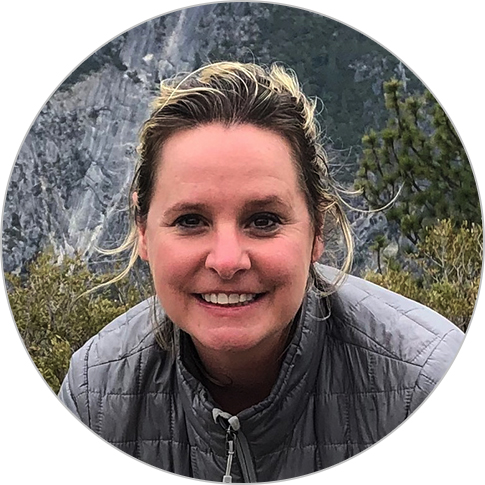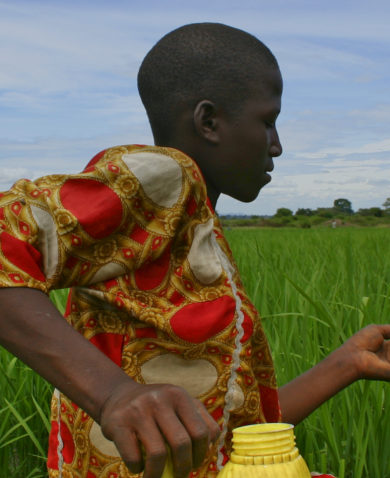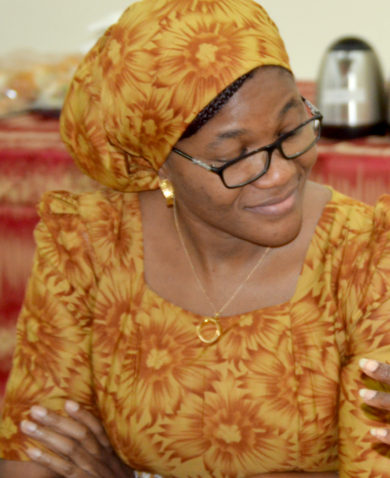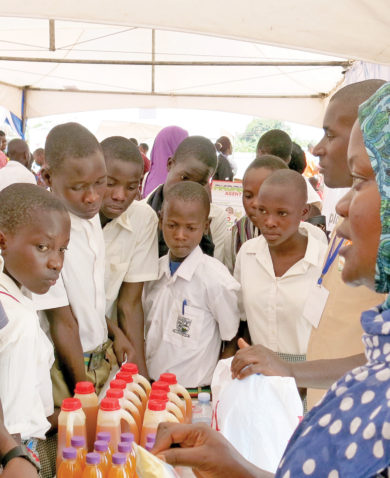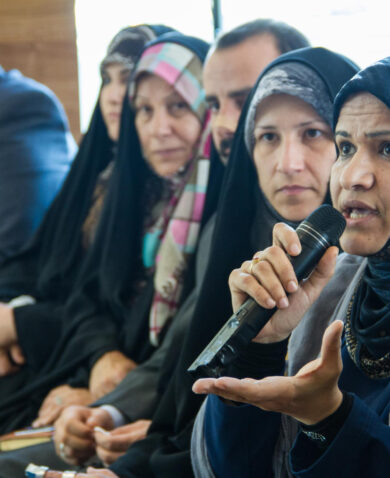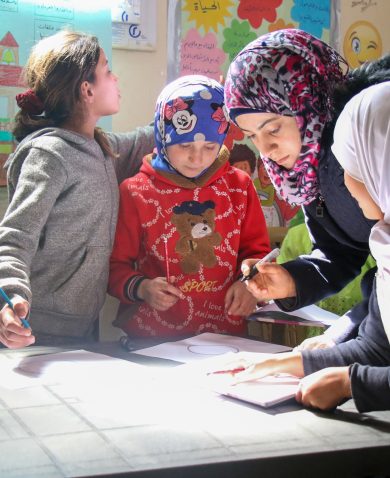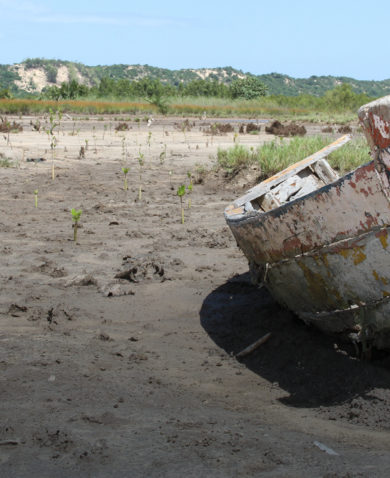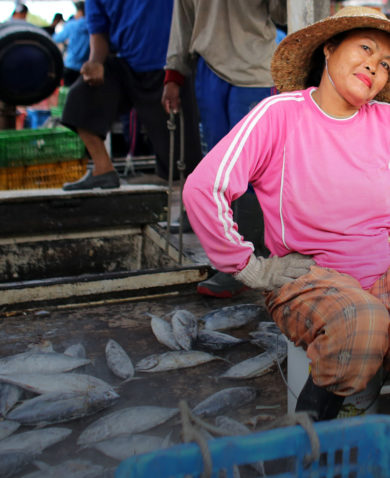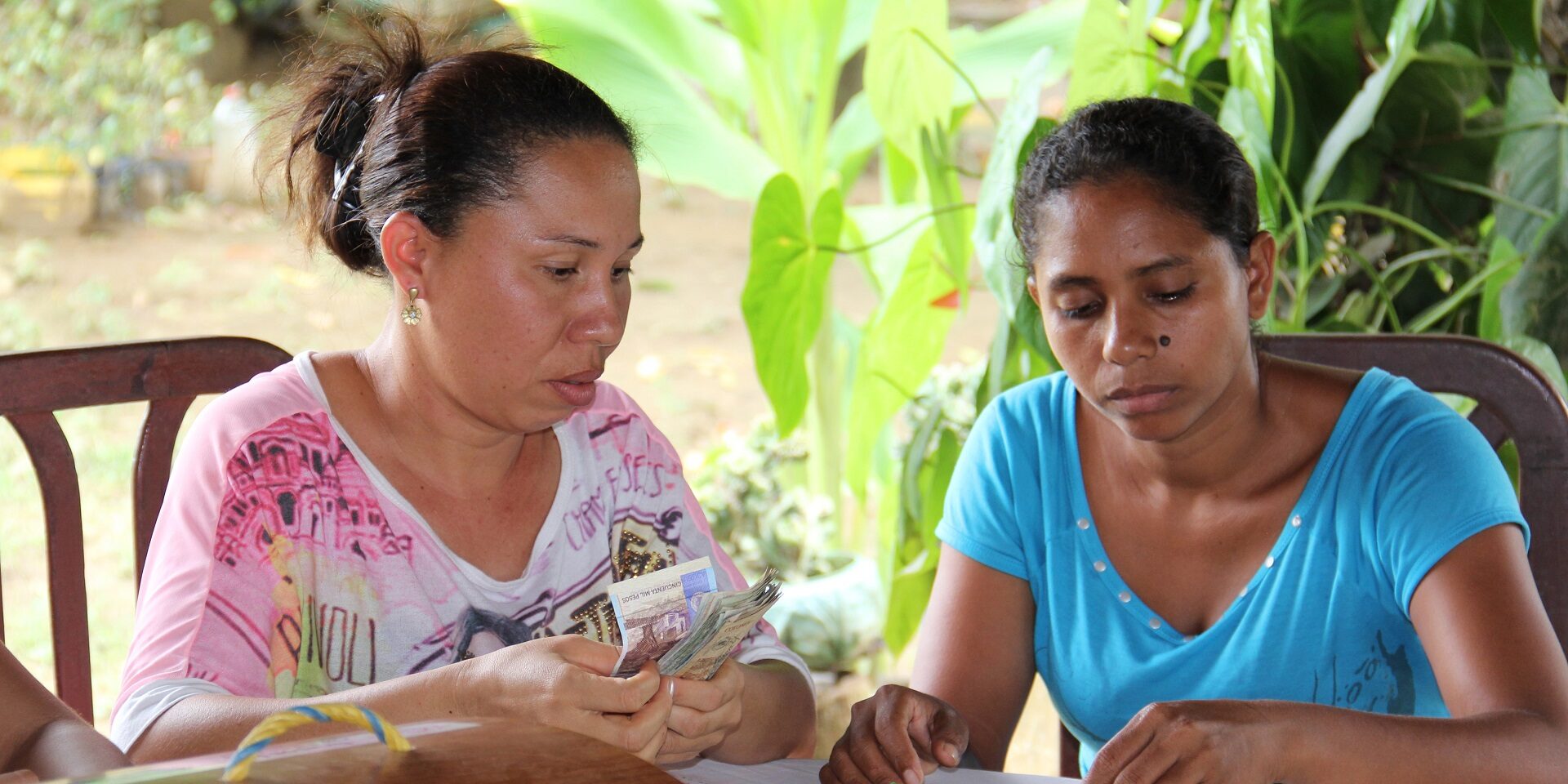
3 Questions with Jennifer Simpson on Applied Research in International Development
September 12, 2022 | 3 Minute ReadChemonics’ senior advisor for applied research shares her thoughts on why research is so critical to continue learning and furthering our impact in international development programs.
Evidence-based decision making not only leads to more successful development outcomes, it can also enable improved agility on projects, allowing changes to be made as fresh information becomes available.
Jennifer Simpson, Chemonics’ new senior advisor for applied research, explains why development practitioners should focus as much on applied research as on other aspects of development work like monitoring, evaluation, and learning.
What is the role of applied research in international development?
What makes applied research special, that is, what distinguishes it from basic research, is that applied research is directly connected to finding practical solutions to specific real-world challenges. This is particularly applicable to international development because applied research aims to improve our understanding about the driving forces and challenges within our projects. For example, one study I was involved in recently identified underlying contributing factors and barriers for primary schools in rural Tanzania to phase over from US-government provided school meals to providing them sustainably through local sources. Currently at Chemonics, I’m leading a study at four financial cooperatives in Colombia that aims to determine the links between social and financial inclusion and the cooperatives’ performance. Applied research is important, because it allows us to develop new and refined evidence-based strategies and approaches that in turn lead to more positive outcomes and impact. It keeps us competitive in our industry.
What is it about supporting applied research that motivates or inspires you? Are there certain sectors that you are particularly interested or experienced in, or want to learn more about?
When I think about what inspires me about research, I am always brought back to the research participants themselves. I think about their lives and their families, the challenges they face, and their goals and aspirations. During the early days of my career, I had the opportunity to work on a small study in Liberia. I took a two-day journey to a remote village to meet and interview women participating in the study. I learned their stories of motherhood, of enormous loss, and of recovery and resilience. One woman was particularly eager to show me her convenience store, a soundly constructed building full of wares in the heart of her village. She told me that the training she received as a study participant taught her how to manage her finances and how to access loans. She used a business loan to build and open her own store, and from her store’s earnings, she paid to send her sister’s children to school. She spoke about her hopes for them to achieve their own dreams. I still think about that visit and how it shaped my perspective on research. It is my goal to do research for good, so I am especially interested in the ethical conduct of research to ensure that we do no harm. In international development, across all technical sectors, we work in very challenging and complex settings, so we must be sure our research does not inadvertently introduce adverse consequences. Our research protocols should identify potential risks up front and include risk mitigation plans. Another way to improve our research is to use more participatory methods. There is well established evidence linking participant engagement in the research process to more culturally sensitive and logistically appropriate approaches, improved recruitment, and better-quality outputs. I am keen to explore how we can do this more often and effectively in our own research within the international development context.
What advice would you give to project teams seeking to pursue evidence and learning opportunities?
My advice would be to recognize the value of having a project learning agenda that is reviewed and updated as information is gained and learning priorities change. Research activities should be aligned with the project’s learning agenda, and, along with other learning agenda activities, must be well resourced and included in work plans. Teams should also explore configuring their existing monitoring and evaluation data, indicators, and systems to generate evidence that answers learning agenda questions.
Banner image caption: Women in Colombia were important beneficiaries of the USAID Rural Finance Initiative, which worked to build an inclusive economy. Applied research can help to understand what is needed to ensure inclusion.
Posts on the blog represent the views of the authors and do not necessarily represent the views of Chemonics.

